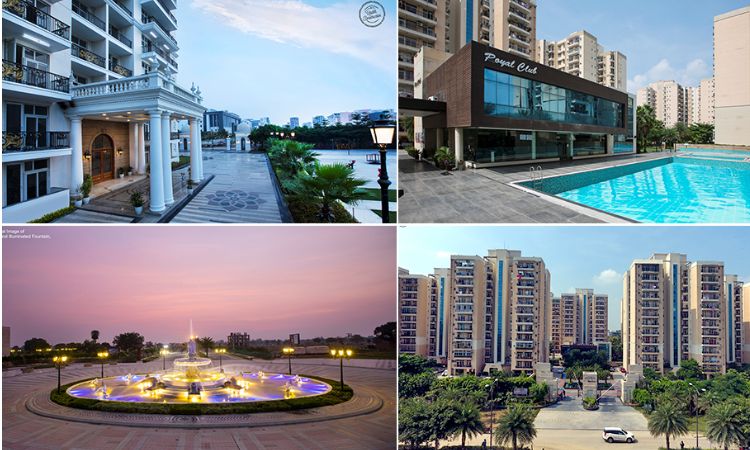Many NRI (Non-Resident Indians) are moving towards the real estate market in India. The interest and investment are fueled by the growing economy and stature of India on the world stage plus other factors as well like potential for great returns, nostalgia, and development of Indian economic factors as well. Being an NRI, you have two great investment options: commercial or residential properties.
Let’s explore which option is better for you in NRI investment in Indian real estate.
Table of Contents:
- Differences of Residential Properties and Commercial Properties
- Advantages of Residential Property Investment for NRIs:
- Challenges of Residential Property Investment:
- Advantages of Commercial Property Investment for NRIs
- Challenges of Commercial Property Investment
- Factors to consider for NRI
- Conclusion
Comparing Residential and Commercial Options
When comparing and deciding between residential and commercial properties for investment as a Non-resident Indian, there are multiple factors you should consider before deciding on which property to invest in. Let’s look at all these differences in an easy tabular form:
Differences of Residential Properties and Commercial Properties
| Aspects | Residential Properties | Commercial Properties |
|---|---|---|
| Investment Amount | Lower Initial Investments | Higher Initial Investments |
| Rental Income | Moderate Levels of Income | Higher levels of Income |
| Capital Appreciation | Good growth potential, Slower than Commercial | Great Potential Growth |
| Management | Less Demands (May require tenants for management ) | More demanding ( tenant screening and lease negotiations) |
| Financing | Simple for NRIs | Requires larger sums of Downpayment |
| Vacancy Risks | Higher Levels of Risk | Lower Levels (Depends Directly on Location) |
| Market Sensitivity | Less Sensitive | Highly Sensitive to economic Conditions |
Investing in Residential Properties for NRIs

There are multiple advantages as well as challenges when investing in residential properties as an NRI
Advantages of Residential Property Investment for NRIs:
When you’re investing in residential properties as an NRI, there are multiple advantages to it.
- Potential for capital appreciation and rental income:
Through time, the property rates may increase providing better capital gains. You can also gain consistent rental income when you lease the property.
- Stable and Consistent demand in certain markets:
Cities like Pune, Bangalore, Delhi NCR, and Mumbai have great demands for residential properties, thus making them a better and safer option for investment.
- Availability of various financing options for NRIs:
Several financial institutions and banks provide specific home loan schemes, making them easier for financial investments.
Know More: Top 15 Best Cities for Real Estate Investment in India
Challenges of Residential Property Investment:
- Maintenance and management responsibilities:
As a property owner of the home, you’ll be responsible for maintenance and repairs and finding tenants as well.
- Tenant-related issues and vacancy risks:
You have to deal with different issues like tenant turnover or late rent payments as well. All this can add stress as well. Vacant residential property also means loss of rental income as well.
- Potential for market fluctuations and price corrections:
The real estate market does go through ups and downs. Be prepared for the potential price changes and corrections as well. Check for market trends for NRI investors and where the graph is going.
Investing in Commercial Properties for NRIs
There are multiple advantages as well as challenges when investing in commercial properties as an NRI:

Advantages of Commercial Property Investment for NRIs:
When you’re investing in commercial properties as an NRI, there are multiple advantages to it.
- Higher rental yields and potential for long-term appreciation:
Commercial properties often provide much improved rental income compared to residential properties and have better appreciation over time.
- Diversification Opportunities
The commercial market provides a wider range of options, including office retail, warehousing, and retail outlets, allowing for portfolio diversification.
- Scalability and Portfolio Growth
With commercial properties, you have the option to lease this property to multiple tenants allowing for scalability and help in the growth of the investment portfolio.
Know More: 8 Indian Cities with the Best ROI for Real Estate Investors
Challenges of Commercial Property Investment:
When you’re investing in commercial properties as an NRI, there are some challenges that you should know about.
- Higher Investment and Financing Requirements
The commercial properties require a larger sum of initial investment and finance options may be limited in terms of NRI accessing these loan schemes compared to residential properties.
- Occupancy Risks and Tenant Retention
Leasing commercial properties can be complex due to multiple factors and vacant periods can increasingly impact your income.
- Sensitivity to Economic Conditions
Commercial property values are sensitive to different economic cycles along with market fluctuations.
Factors to consider for NRI
As an NRI you should consider certain factors before you invest in Indian properties. The residential properties
Investment Goals and Horizons
- Short Term Vs Long Term investment
If you want to invest for a short while you need to be focussed on rental income particularly, then go for residential properties. Commercial properties are great for long-term investment and they provide a return in a longer period.
- Aligning Goals with Different Properties
Clearly define what type of goals you want for investment – capital appreciation income generation or both. Choose that property of properties that align with your goals.
Know More: Important Checklists for NRIs Before Investing in Real Estate in India
Risk Tolerance and Portfolio Diversification
- Risk Profiles:
Residential properties do have a lower level of risk, while commercial properties have higher risk levels but do provide greater rewards if you withstand those risks.
- Diversification Strategy
Consider your strategy by diversifying your portfolio and investing in both commercial as well as residential properties to manage risks and spread of the investment base.
Legal and Regulatory Considerations for NRIs
You need to understand the legal aspects of NRI property investment
- Regulatory Framework
The different regulations that govern NRI ownership in Indian properties change according to residential or commercial properties. Familiarize yourself with the laws that govern these properties.
- Compliance and Professional Guidance
Ensure that you can comply with all legal and different regulatory requirements and consider seeking professional guidance from real estate investors and lawyers.
Property Management and Maintenance
- Management Options
Maintenance of residential properties can be done on a personal level. For management of commercial property, you can hire property managers who can take care of commercial property.
Conclusion
Choosing Residential vs. commercial property for NRIs is a very crucial factor and many real estate investment options in India can provide great returns. But as an NRI you have to look at your goals and your risk tolerance as well along with watching for changing market trends to invest in the property that’s right for you.
Exploring Investment Opportunities with Top Real Estate Developers in India
As one of the top real estate developers in India Omaxe LTD. provides multiple lucrative opportunities in terms of both residential and commercial properties in India. Explore our wide portfolio of properties that are suited to your needs. For further assistance do contact us now and discover a path for the best property investment in India.


